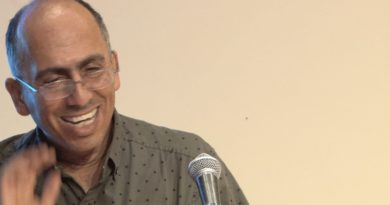Here is what I think about Israeli settlements
I’m a 90-year-old woman who has lived in Israel for 50 years – here is what I think about Israeli settlements
Ruth Kedar
Since I witnessed their beginnings half a century ago, the settlements have only got worse. The size and scale is something I can’t get over
It took decades for the immorality of occupation to sink in.
In 1967, my husband was a military man. We were posted abroad when the war was won and the fabric of the still-infant Israel changed, perhaps irreversibly. When we came home in 1968, the mood was victorious and we thought it was marvellous. We were truly blind to what was happening.
No one spoke of occupation back then. In those early days there was no wall, no checkpoints and no closures. But slowly, the cracks began to form. My children first helped me realise what was happening. I had three sons in the army during the first Lebanon war and then later as reservists in the West Bank.Through their stories I began to see the truth.
But still I did nothing. We were busy living and life was good. The anger took a long time to cook before it reached boiling point. It was not until 2001, after the second intifada, when, for me at least, enough was enough. I could not longer sit back and watch my country behave illegally and immorally and so, in anger, I began to act.
First, I stood at checkpoints with other women to monitor what was happening there. It was here we started to see the other side and we were shocked. When we went to the villages in the West Bank, I was flabbergasted.
We met a Palestinian called Ibrahim, who said, “Things are happening here. They won’t let me go on my land. They are beating us.” After several years of simply bearing witness, Ibrahim made us realise that exposing the injustices of occupation was not enough. More needed to be done.
We were just a handful of naive women and, with nothing but chutzpah, we founded Yesh Din. I still don’t know how we did it.
Yesh Din, Hebrew for “there is justice”, is now one of the handful of Israeli NGOs holding our government’s practices to account and seeking to uphold the law, human rights and freedoms the occupation denies millions of Palestinians.
Ibrahim was our test case. We went through legal procedures and got him back on his land. We then heard from a widow who had been forced from her home by settlers. We got her house back.
Since 2005, Yesh Din has helped Palestinian victims of crime and grave violations of international humanitarian law file 1,122 complaints. By 2016, only 90 investigations (8 per cent) led to indictments. In addition, we represented Palestinian landowners and municipality heads in 64 legal proceedings before the Israeli Supreme Court or administrative tribunals.
I believe that while this occupation – the main source of Palestinian human-rights violations – continues, there will not be justice here for Israelis or Palestinians alike.
Our wins are still too few. We have successes, such as the recent evacuation of the Amona outpost, and demolitions of settler houses elsewhere, but so much of our daily work, even now, is done knowing that more cases will be closed than won. But even when we know this, we also know, as we did when we stood at the checkpoints almost 20 years ago, it is the right and moral thing to do.
Since I witnessed its beginnings half a century ago, the occupation has only got worse. The size and scale of settlements is something I can’t get over. I know every little road and every little village of the West Bank and it is frightening to see them swallowed up piece by piece by indistinguishable rows of red roofs that multiply across Palestinian land. It is robbery that is devoid of shame.
If only all Israelis could see what I have seen. I know that when life is good people are indifferent and blind to the suffering of others. In the bustle and beaches of Tel Aviv it is almost impossible to think about the scale of poverty and abuse of rights happening just 20 miles away. Settlers live in cheap housing with wonderful views of the mountains. No one thinks of the injustice that lies among those hills.
No one does enough; Israelis, international governments, or the global public. We are all too indifferent and too comfortable. The occupation, among the worries of the world right now, hardly registers.
For 50 years the occupation has weakened Israel from within. It should never have happened. It has brought such radical and negative change to the country I love that I wonder every day whether what we have become is a place that I want my grandchildren to grow up in. In my 90 years, I have lived all 50 of this occupation. I will keep trying to end it. I don’t know for how long, but I will.
Ruth Kedar is a founding member of the Israeli NGO and Oxfam partner Yesh Din and continues to volunteer every week with Yesh Din in the West Bank.
http://www.independent.co.uk/voices/israel-palestine-settlements-heres-what-i-think-a7784866.html




